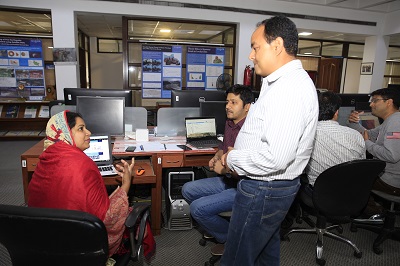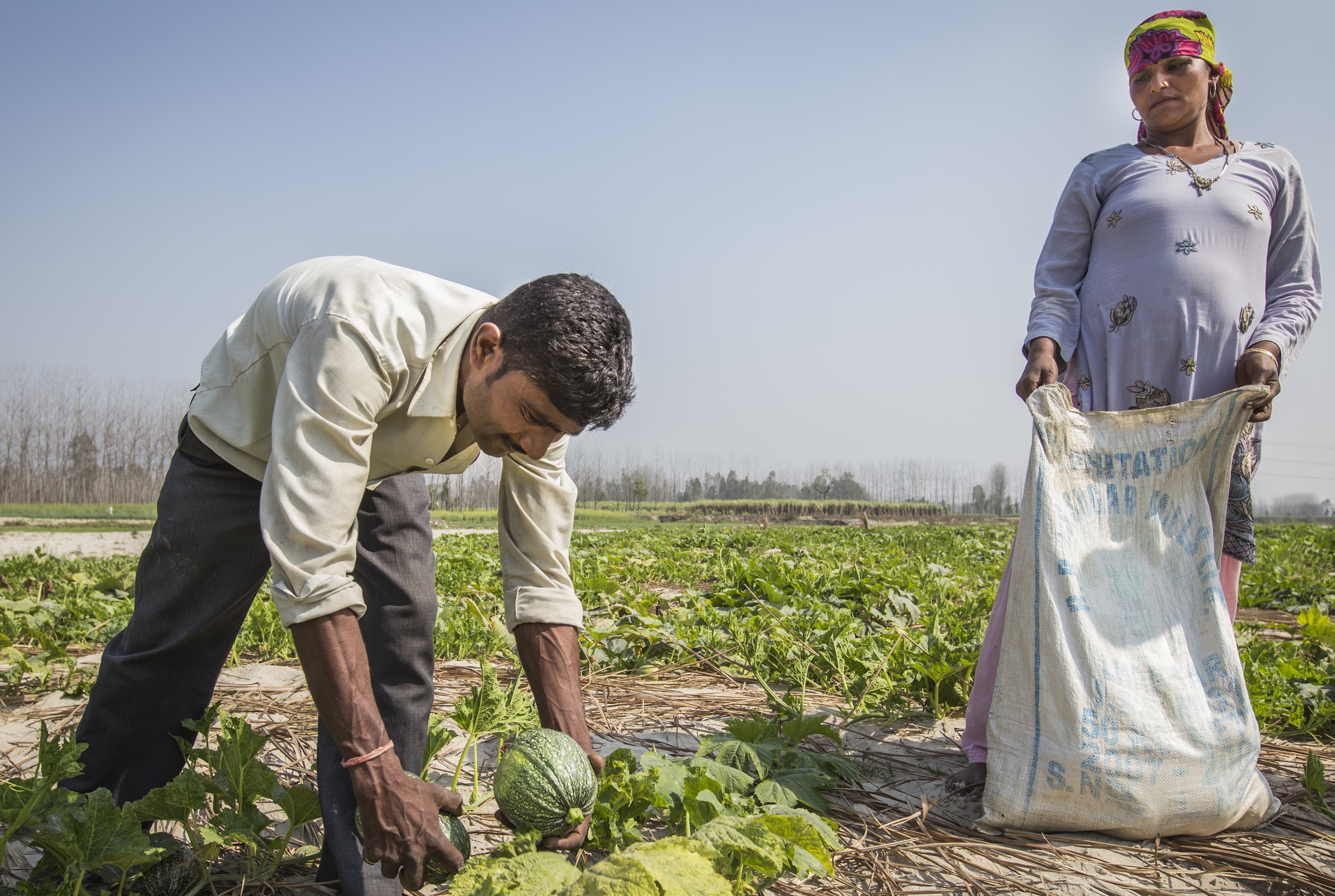A two-week on the job training took place in March on the application of remote sensing in drought monitoring and crop mapping in Kathmandu, Nepal to build the capacity of young and mid-career professionals. The training was organized with the support of the International Maize and Wheat Improvement Center (CIMMYT)-led Climate Services for Resilient Development (CSRD) initiative in South Asia, alongside the International Centre for Integrated Mountain Development (ICIMOD). The training introduced participants from Bangladesh’s apex agricultural research body, Bangladesh Agricultural Research Council (BARC), and the Bangladesh Agricultural Research Institute (BARI) to remote sensing techniques for monitoring and forecasting weather patterns.

The training strengthened the remote sensing capabilities of professionals from BARC and BARI in using satellite-based remote sensing tools and crop mapping to monitor drought risks. During the training, participants were exposed to a number of remote sensing and geographic information systems tools including SPIRITS, QGIS, ArcMap, GeoCLIM as well as a foundation course to Google Earth Engine. Additionally, open source platform to perform online and offline data collection using mobile application training was provided.This learning exchange took place in order to address the risks for agricultural drought in portions of north-western Bangladesh where farmers may lack access to, or cannot afford irrigation. This leads to bottlenecks in crop productivity and can impair the livelihoods of smallholder farmers reliant on variable and unpredictable precipitation. Access to quality drought monitoring and forecasting could assist farmers in adapting to these climactic risks. Meteorological and agricultural research institutions play a crucial role in providing improved information flow and drought risks advisories to farmers.
Mir Matin, theme leader of Geospatial Solutions, ICIMOD, organized the training on behalf of CSRD and ICIMOD, alongside Rajesh Bahadur Thapa, capacity building specialist, ICIMOD. ICIMOD’s Bhoj Raj also facilitated sessions on application of these tools.
“Bangladesh, especially the northern region, is most susceptible to drought and it is difficult to grow year-round crops here,” said Suraya Parvin, senior scientific officer of BARC. “To increase the cropping intensity in this region, drought monitoring is very essential. I think this training was extremely useful to prepare us for this challenge.”
The CSRD partnership and ICIMOD are working together to establish user-oriented platforms for the provision of easily accessible, timely and decision relevant scientific information, in the form of climate services. “This training, and the applied science products that will come from it, will be a crucial part of efforts to increase the resilience of Bangladesh’s smallholder farmers to climatic risks,” said Timothy J. Krupnik, systems agronomist, CIMMYT and CSRD project leader. “Working with the graduates of the training on a day-to-day basis, we expect to deepen BARC and BARI’s contributions to applied climate services in Bangladesh.”
CSRD is a global partnership whose core mission is to translate actionable climate information into easy to understand formats to spread awareness and use of climate services. The Climate Services for Resilient Development (CSRD) consortium in South Asia is led by International Maize and Wheat Improvement Center (CIMMYT) in partnership with the Bangladesh Meteorological Department (BMD), Bangladesh Department of Agricultural Extension (DAE), the Bangladesh Agricultural Research Council (BARC), the Bangladesh Agricultural Research Institute (BARI), the International Centre for Integrated Mountain Development (ICIMOD), International Institute for Climate and Society (IRI), University de Passo Fundo (UPF), and the University of Rhode Island (URI).
 Capacity development
Capacity development 